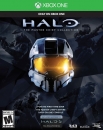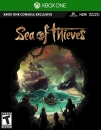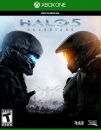V-r0cK said:
But I'm just really curious to what extent because sometimes the aim could be low just so companies can fluff the numbers. I'm not saying for Sea of Thieves but in general for all games etc. Let's use Sea of Thieves for an example but I actually mean for all games in general when it comes to these 'being played' statistics. Say Rare/MS used the same amount of time like Netflix does with 2 minutes into the game counts as play, what if the introduction video of the game itself is over 2 min long so MS/Rare counts it, but do you yourself actually count that as being played when all you've done was watched the intro? (Obviously if you're watching the intro you'll likely be playing a bit afterwards too). I've seen trophies where say a game sold, lets say 5M copies, but only say that only 80% of gamers achieved the first trophy of completing the very first chapter. That means only 4M gamers have played it enough to finish the first chapter, which I would considered that as being played, while 1M gamers havent really played it. I even think there was an Uncharted or Tomb Raider game trophy for getting the first treasure and that's like automatically at the very beginning that can't be missed and the trophy percentage wasn't even 100% for that. So like there was quite a few people that didnt even actually try it at all but bought the game. Sale numbers means the most since that's money earned and that's the best way to define it's success since people actually bought it. But when i hear about a certain game was played this amount, or this game was downloaded this amount, I get a bit weary about that and feel they could be fluffing the numbers just to please the big heads. 'Downloading numbers' are also funny, cause like some games boast that it's been downloaded 'X' million times, but of course it has since it was free. I've also downloaded a bunch of games cause it was either free to play or free on PS Plus but sometimes I just never even tried it and i delete it right after cause I realize i wasn't really interested and wanted to save storage space, so I personally dont think that should count for anything. Bottomline, I feel like there needs to be a clear standard that defines what is 'being played' is all. In my opinion, it should be like when you at least finished the first chapter or something along that line. Site note: My brother said he played the first The Last of Us for just 15min and he also said it sucked. 1) To me, 15 min isn't enough to say you played it. 2) He's also a complete idiot for judging a game when you've only played for 15min. |
If someone goes through the effort to download 50+gigs of a game, it shows interest.
Whats the difference if i go into a store, buy a game, play it for 1 day, than return it the next day.. that purchase still counts as a sale. The exact same issue happens with actual purchases for decades.
Phyiscal sales arent entirely accurate either.


















































